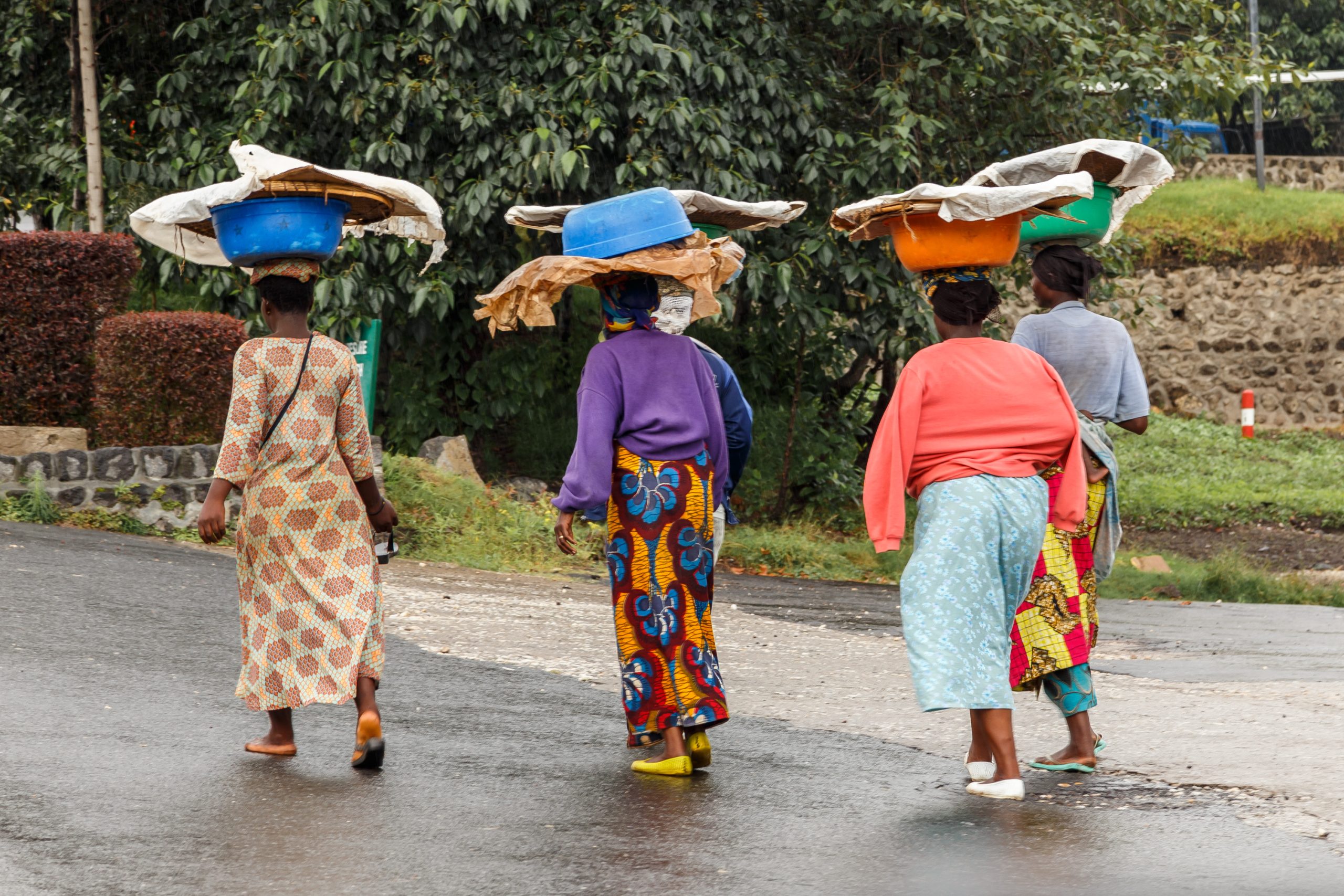
Neighbourly Practices in Bemba Culture
Neighbourly Practices: Bemba Culture
Community living and cordial neighbourly practices are the lifelines of the African Culture. All the Zambian tribes embrace community living, and the Bemba tribe is no different.
There is an excellent spirit of interdependence among the Bemba Culture. Warm and friendly relationships are forged between and among neighbours. This interdependence is not limited to neighbours, but cuts across villages too and clans.
Warm, neighbourly practices are also seen among clans. Bemba clans are named after animals or trees. For example, a clan called Abena Mbwili (Leopard Clan) and the Abena Mbushi (Goat Clan) form a cousinship and always joke together that the Leopard Clan is to be feared by the Goat Clan because the Leopard Clan can easily eat the Goat clan.
Another example is the cousinship clan is between the Abena Ngwena (Crocodile clan) and Abena Sabi (Fish Clan). The Crocodile Clan always teases the Fish Clan that the fishes are their meals which they could eat at any time, and the fish clans always joke back and say that without them, the crocodiles would die of starvation. During celebrations and bereavements, the cousin clans work hard to ensure everything goes smoothly and ease the sorrow during the funerals. They playfully tease each other while carrying out the duties.
The cousinship among clans is of such great significance in the neighbourly practices of the Bemba Culture that even during the ‘Impango’ (dowry) negotiations, they usually get away from fulfilling certain demands because they just joke it away.
During funerals, cousin clans take over fetching firewood, water, and cooking. Bereaved families are usually preoccupied with mourning, so the neighbors take over the necessary chores until burial.
Cordial neighbourly practices promote happiness, and children do not solely depend on their blood relatives. For example, the whole village would be proud and celebrate a child who excels in studies, joins the army, becomes a priest, doctor, teacher, nurse, engineer, etc. The child’s achievements are seen as a village achievement.
Below are some events in the Bemba culture that highlight interdependency and cordial neighbourly practices.
Activities
- When Building a Rondavel (roof, thatching and Plastering the walls) “(Pakukula in’ganda kupalika umutenge noku masa ifibumba
The terms used for building:
(i) Ukukula – Building a rondavel
(ii} Kupalika umutenga – Roof Thatching
(iii) Ku masa – Plastering
(iv) ifibumba – walls
(v) Ku shingula – flooring
It is a common neighbourly practice for neighbours to come together when one is building a rondavel hut or house. In the village setting, neighbours are not paid to build a rondavel; it is a community event. Any person who wishes to construct a rondavel will ask their neighbours for assistance. The men find the wood for roofing and the walls if bricks are unavailable. The women fetch grass for roof-thatching. They also bring the clay for plastering the walls and the floor. This neighbourly act relates to a proverb that says ‘Umuno umo tausala inda, ‘ which translates to ‘One finger cannot pick up lice.’ This proverb means that teamwork is essential for completing faster with better results. Therefore, the kind of work involved in building a rondavel requires collaboration; a person cannot do it alone. They need the help of others (neighbours). The owner of the rondavel ensures that meals are prepared for the neighbours helping to build the rondavel.
- During the Funeral
Funeral – the community displays neighbourly love during funerals. In the Bemba culture, when there is bereavement, neighbours are not invited to the funeral; they just show up and offer any required assistance. Ladies bring firewood, fetch water prepare meals for the entire duration of the funeral. After the burial, they will remain behind to clean up. They will continue visiting the bereaved family almost daily, sometimes bringing food from their homes. They usually take turns until the bereaved family is materially and emotionally strong enough to carry out their chores. A Bemba saying states ”Ukwangala kwacila ulupwa” – meaning “friendship is greater than family”. Neighbors are more dependable than relatives in times of adversity or need, as some of your relatives may live far away from you.
- During a Wedding
A Wedding is also a community affair. At a wedding, neighbours just show up and volunteer to carry out whatever chores need to be done, such as cooking, building an “Icisasa” (grass enclosure for the wedding). Except for the “Icimbusa” (the people who teach the bride and groom) who are handpicked by the bride’s and groom’s parents, the rest of the community members just show up and volunteer to carry out the chores at the wedding. However, in urban areas, wedding attendance is by invitation. - Ploughing and Harvest Season
Ploughing and harvest season is an excellent opportunity to show neighbourliness in the Bemba culture. During this period, neighbours take turns to help each other plough the fields and harvest their produce. The owner of the field shows appreciation by preparing meals for the neighbours assisting. In most cases, the field owner brews beer, prepares food, and calls the neighbours who helped to plough for a feast as a way of showing their gratitude.
- Visitors
When visitors visit a family, and there isn’t enough room to accommodate them, it is common for a family to ask a neighbour to accommodate their children at their house to ensure that the visitors have room to sleep in. If the visitors are in-laws, the family usually asks the neighbours to accommodate the in-laws for sleeping. The neighbour’s children (where the in-laws are accommodated) will sleep at the host family’s house until the visitors set off. The in-laws are accommodated at the neighbours at night. During the day, they stay with the relatives they are visiting. Also, other neighbours will always bring food to the host family to welcome the visitors.
Proverbs and Sayings:
Below are some of the proverbs and sayings that reflect in the good neighbourly practices of the Bemba culture:
- Twende babili temwenso kusoshanya – Walking two by two is not fear; it is a discussion. It means that when people walk (work) together, they make the journey more manageable as they discuss matters and share ideas. There is support and teamwork, which results in more remarkable achievements.
- Cinchi wabali te cinchi uliweka – Vigilance is not vigilance when one is doing it alone. It means that even if one wishes to be a watcher over things, one cannot achieve much unless done with many other people.
- Amenshi yakutali, tayashimya mulilo – The far away water cannot put out the fire. It means that one cannot rely more on relatives such as those far away to help in a bad situation than a close neighbor. It is better to call or depend on a nearby neighbor than far-off relatives.
- Imiti ipalamene taibula kukwesana – Trees close to each other sometimes rub against each other. It means that neighbours should not take everything offensive their neighbour does to heart. Tolerance needs to be practiced among neighbours so that they live in harmony.
- Ulukuni lumo talwaka – One log of firewood cannot alight. It means that challenges shared are usually solved easily than dealing with challenges alone. A problem that is shared is a problem half solved. It is better to share issues to assist each other in carrying burdens.
- Umwana wa mupeta, tafwa ku nsala – A child of a generous person cannot die of hunger. This proverb means that kindness is always rewarded. When a person is generous to other people, others will surely remember them, and their family can benefit from their generosity in the future. From this discussion, we can conclude that cordial neighbourly practices are highly esteemed in the Bemba culture. These neighbourly practices are what keep the tribal relations intact. The Bemba tradition is not individualistic but community-based. Also, since the Bembas usually communicate using Proverbs and Sayings, community members learn to treat their neighbours as close relatives rather than outsiders early in their lives.
